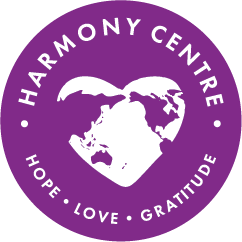Diploma of Mentoring, Coaching and Interpersonal Facilitation

This is our flagship course, fully accredited by the International Coach Federation (ICF) as a Level 2 Coach Training Programme.

It's a 12-month in-depth course which gives you the skills, knowledge and understanding to work as a coach, mentor and facilitator.
It comprises a minimum of 168 coach-specific training hours with further self-study to give you a solid, grounded understanding of the art and science of coaching, mentoring, facilitating and training. It also gives you the skills and knowledge to create your own training, work with groups as well as individuals, speak from the heart in front of an audience and create and deliver workshops.
The main focus is working from the heart, not just the mind. We are passionate about mindfulness, and we take it a step further to heart-full-ness where you engage with clients from a space of unconditional positive regard, kindness, love and wisdom.
The learning is a blended style which includes:
- 2 intensive workshops in person and 1 online workshop
- 20 fortnightly live webinars where you study from the comfort of your own home
- Practical coaching practice with your fellow students in supervised phone/webinar group work
- Set work to study in your own time - such as recordings of coaching to listen to and reflect on and then discuss in class and reading course materials
- Regular group mentoring sessions
- A series of one-on-one mentor-coaching and coaching supervision sessions during your work with volunteer clients
- And, as the foundation, a deep engagement with our philosophy of "Know Thyself" through a series of self-reflection exercises to underpin your learning
This gives you a deep and rounded experience to be a coach, mentor, facilitator and workshop creator who is comfortable working deeply with clients and able to handle a broad range of client situations with equanimity and harmony.
The learning is through enjoyable practical activities combined with reflection, reading, listening, discussing and writing.
Modules include:
The Art and Science of Coaching
The coaching course materials are based on the International Coach Federation's 8 core coaching competencies.
It centres around applied learning through our interactive peer coaching programme with regular tutoring in the form of coaching your fellow course participants and involving tutors on every second session to engage in round table discussions to explore how the competencies were expressed.
We want you to become the coach that YOU are - uniquely - and support you to delve into what makes you tick, because we know that WHO YOU ARE IS HOW YOU COACH.
Reflection and Self-Awareness
This is the foundation for the course - 'Know Thyself' so you can be the clearest mirror for your clients. You will explore your own inner landscape with a view to understanding your own patterns and habits and how they can get in the way of good coaching, or support good coaching.
There are a number of reflective exercises you will work through. Each exercise builds on the previous one to become a set of tools and practices which will support your onwards journey in whatever field you choose to work in.
Mentoring
We discuss how great mentoring brings the best of what you've learned, the wisdom you've gained, and uses a coaching platform to support your mentees to find their own pathway rather than just 'tell' someone what you did or what they 'should' do.
The Study Process
The course is a year in duration with four phases, each containing distinct learning segments, each designed to build on the previous segment to provide a well-rounded skill set.
Classes are held every second week, however, once a month there is an additional group mentoring session which gives you an extra class in the month.
Also, there may sometimes be weekly classes to fit in all the material and resources over the year.
There are two 3-day workshops in person, one a few weeks after the commencement of the course and one at the end. There is an online weekend workshop with the whole cohort part way through the course.
Classes will commence with the in-person 3-day induction workshop held in Perth, Australia.
Classes will then be held via webinar from the comfort of your own private space.
Halfway through there will be a 2-day online workshop conducted via webinar, again, from the comfort of your own private space.
The final in-person workshop will be 3 days at the conclusion of the course where all the work will be tied together and, if you have successfully completed your work competently, you will receive your certificate!
During many of the months, the group mentoring session runs as a one-hour class during a week when there is no scheduled class. There is no new content in these helpful sessions, rather it is a place where students can come and ask questions, get help with things they may be struggling with in the course, and explore the learning so far in an open forum which is friendly and designed to support you.
Phase 1:
0 – 3 months – classes 1 to 9
The first 3 months segment addresses the art and science of coaching.
It also contains the first in-person workshop run concurrently in the UK and Australia
In this section, you will have coaching recordings to listen to and comment on, and class discussions where you will gain insights into the ICF 8 core competencies.
We look at what coaching IS and is NOT. In this part of the course, we set aside your current habits and ways of doing things so you can learn with an open mind and ‘an empty cup’. As Lao Tzu said, you cannot put something in a cup that is already full. So, we explore with new eyes and an open heart to learn the nuts and bolts of coaching skills.
In this section we commence working on reflective practices with different supported focuses to work with each week. The reflective work underpins the whole course, and you will continue to work with various practices and tools to support your effective reflection.
Phase 2:
3 – 6 months – classes 10 to 12
The second 3 months puts the learning into action.
At the start of phase 2, you are ready to start practical work. This involves coaching and mentoring one another in supervised practice groups.
During this phase, you have fewer ‘formal’ classes and instead will immerse yourself in the practical work of coaching your peers. You will engage in 27 triad sessions, 12 of which will be small group tutorials based on the coach’s skills in that triad session. The triads consist of a coach, a client, and a mentor/observer. You will be in three triads, one where you are the coach, one where you are the client, and one where you are the mentor/observer. The aim is to deepen your understanding of all the 8 core competencies and their application in a practical way.
During two of your triad sessions, you will have one of our tutors on the call with you to debrief and reflect on the coaching process. All our tutors are professional mentors and coaches, and all are graduates of our programme.
At the end of phase two, you will undergo your first formal assessment event, demonstrating your coaching ability, and be assessed at Associate Certified Coach level (ACC) to determine whether you are ready to begin coaching pro bono clients.
Your session 9 triad will be your submission for assessment. You will submit your recording and a transcript of your coaching at this level for assessment by one of our ICF-trained assessors to ensure you are coaching at a professional level before you begin coaching pro bono clients. You will be given support to ensure you are capable and ready to work as an entry-level coach.
You will also continue to work on the reflective practices which strengthen your application of being a reflective practitioner (Competency 2), as well as increasing your capacity for building trust and safety (Competency 4) and being fully present with your clients (Competency 5).
Additionally, you will have classes on coaching psychology, ethics, and mentoring to promote a well-rounded approach to coaching.
Phase 3
6 – 9 months – classes 13 to 15:
Now it’s time to get out in the real world and do fieldwork.
This phase has your second workshop intensive held online with the whole cohort
During this phase of study, you will work with pro bono clients and undergo one-on-one mentor-coaching sessions and one-on-one coaching supervision sessions.
You have two ‘milestones’ to reach with your pro bono work. These milestones involve engaging in your first 2 one-to-one mentor-coaching sessions, and your first 2 one-to-one coaching supervision sessions.
You will also explore the ethics module in more depth during this phase, as well as continue to explore the various topics of self-reflection as you undergo the practical work.
Phase 4
9 – 11 months – classes 16 - 20, practical fieldwork, second intensive online, & final in-person intensive:
This brings the year’s learning together and completes your studies
This last phase of the course is where you finalise your pro bono work, prepare your submission for your final assessment, wrap up your learning, and write your summary of learning from the course, drawing from your learning journal notes, reflective summaries, and all course work.
The final topics for this segment tie it all together with learning facilitation skills using a coach approach, as well as adult learning principles, and how to create workshops and training.
There will be another practical work month with no formal classes so you can focus on completing your pro bono work, mentor-coaching, and coaching supervision sessions.
This phase sees your final assessment event where you will submit a final recording and transcript at beginner Professional Certified Coach (PCC). Your one-to-one mentor-coaching and supervision sessions prepare you for this assessment event.
The second immersion weekend will be held during this phase where you will learn adult learning principles using a coach approach, drawing on many of the core competencies in how you communicate with an audience, and invite them to become involved. Learn how the 8 core competencies can be applied in presentations and workshops for maximum audience benefit. This is our “Creating workshops and training” workshop and explores the “how, why, and what if” components of putting together material that you can take out into the world to support your business or work. The workshop is a two-day immersion experience online which is a practical, hands-on workshop with activities and fun for all.
From this workshop, you will create a short piece to bring to present at the final in-person immersion 3-day weekend workshop.
The final three-day weekend workshop follows class 20 and involves learning about how to present from the heart. During this immersion 3-day workshop you will learn presentation skills using a coach approach, drawing on many of the core competencies in how you communicate with an audience, and invite them to become involved. Learn how the 8 core competencies can be applied in presentations and workshops for maximum audience benefit. This is our “Essential Presenting Skills” workshop and explores the art of ‘presence’ in front of an audience. The workshop is a practical, hands-on workshop with activities and fun for all. On the final day, you will present your segment of a workshop or presentation that you prepared from the online immersion weekend, and practice delivering it in front of your cohort.
Click here to contact us if you would like an info pack. Click here to see our fee structure.
Check out the Global Coaching Academy YouTube channel for more content!

